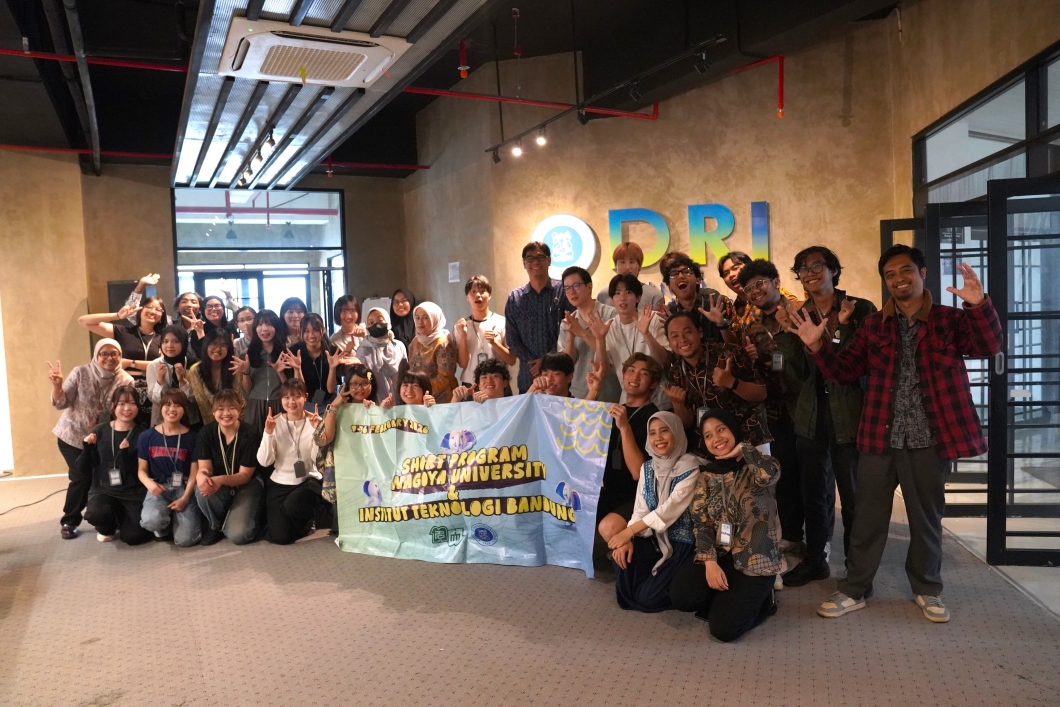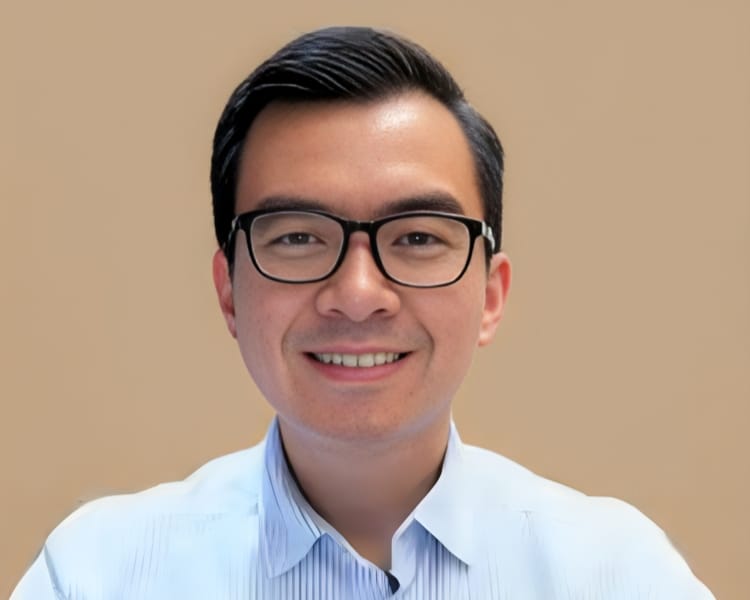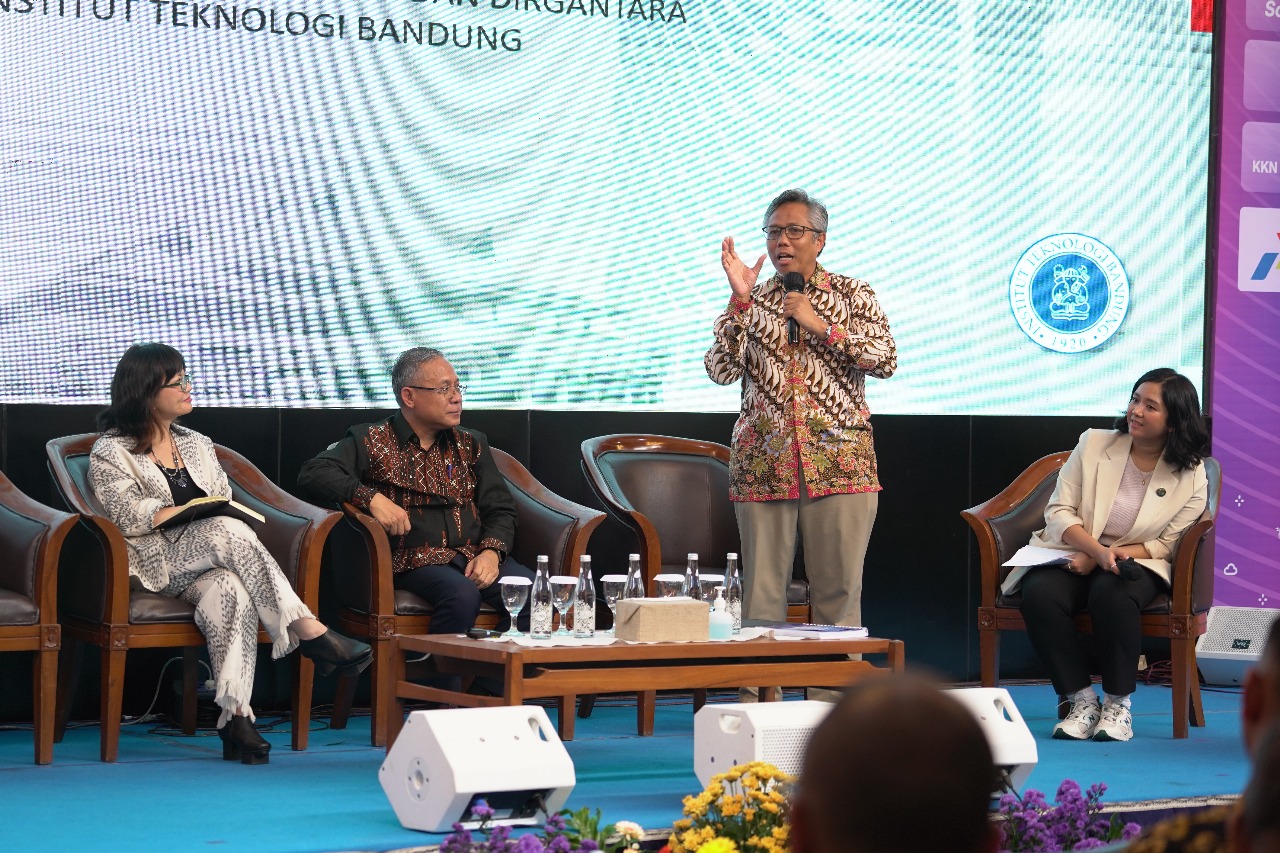ITB's Excellent Research Culture: Yesterday, Today, and Tomorrow's Challenges
By Adi Permana
Editor Adi Permana
BANDUNG, itb.ac.id – Excellent Research Culture emphasizes a character based on scientific spirit, truth, integrity, and ethos to create excellent work. And so was explained by Dr. Ir. Grandprix Thomryes Marth Kadja, M.Si., during the inaugural Studium Generale KU-4078 course in the second semester of the 2022-2023 academic year.
This Studium Generale Course was held offline in the West Hall of the Ganesha Campus on Wednesday (01/18/2023). ITB's Leading Scientific Culture, explained by Dr. Grandprix, was the main topic of the lecture.
Dr. Grandprix, also the youngest doctor in Indonesia, is the Secretary of the Institute for Science and Technology Development ITB (LPIT ITB). He is a lecturer from the Chemistry Study Program at the Faculty of Mathematics and Natural Sciences ITB (FMNS ITB). In 2021, Dr. Grandprix was awarded as the best lecturer in the research field of FMNS ITB. Furthermore, he also ranked among the top 10 young lecturers with the most Q1 publications in ITB from 2019 to 2022.
Dr. Grandprix started his lecture by describing LPIT ITB, an institution that is the center of ITB's research.
"LPIT ITB has been focusing on research related to information and communication technology, food and health, transportation and energy, as well as regional affairs and disaster prevention. LPIT ITB also supervises the science and technology park, which provides an ecosystem to advance invention into innovation," he explained.
The Ganesha science and technology park (STP) was already operational in 2022. On the other hand, STP Gedebage was targeted to operate in 2024.
ITB established its Excellent Research Culture over a century ago, and its roots have been strengthened ever since. Originating from the Dutch colonial period, the first engineering college in Indonesia was inaugurated under the name De Technische Hogeschool te Bandung (TH Bandung) in 1920. One of the prominent figures who initiated ITB's Leading Scientific Culture during the TH Bandung era was Prof. Dr. Jacob Clay, the second rector of TH Bandung.

In 1927, Jacob Clay played a significant role in proving and resolving a "scientific war" between two Nobel laureates, Milikan and Compton. Having two contrasting ideas, Milikan and Compton argued about cosmic rays.
Millikan stated that cosmic rays were electromagnetic waves, while Compton insisted they were charged particles instead. Amidst the intense debate, Jacob Clay came up with a way to find the truth through an experiment published in a journal called "Proceedings of the Sections of Science." The said experiment was conducted in Bosscha Observatory, Bandung. From this experiment, Jacob Clay obtained that the intensity of cosmic rays could fluctuate according to their height. The results of this experiment strengthened Compton's statement.
"Through Jacob Clay's outstanding breakthrough, ITB's Leading Scientific Culture intensified and became more sophisticated. The culture introduced by Jacob Clay created a behavior based on science, truth, integrity, as well as spirit to develop excellent works," stated Dr. Grandprix.

The excellent research culture has manifested itself in ITB to this day. By embracing this culture, ITB would constantly foster the quality of its innovations, research, publications, graduates, and staff. A concrete example culminated by this culture was ITB's QS World University Ranking, which leaped from 407th position in 2014 to 235th in 2023. In addition, the number of ITB's Q1 publications has also skyrocketed since 2019, surpassing the number of publications from other notable universities in Indonesia.

However, ITB must also face the grievous challenges of the future. Various aspects of ITB's Leading Scientific Culture, such as synergy, research, academics, and partnership, must be improved regularly.
Moreover, it is imperative to enhance the quality of ITB's scientific publications, innovations, and community services. "Make no mistake, ITB earned its eminence because of its students, not the opposite. Do not take it for granted, "concluded Dr. Grandprix.
Reporter: Yoel Enrico Meiliano (Food Engineering' 20)
Translator: Ariq Ramadhan Teruna (Chemical Engineering' 21)




.jpg)
.jpg)
